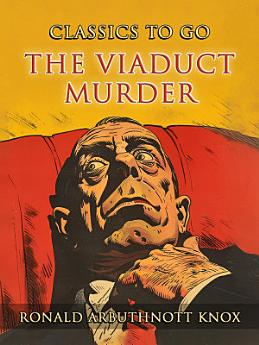The Viaduct Murder
Mar 2024 · Otbebookpublishing
Ebook
185
Pages
family_home
Eligible
info
reportRatings and reviews aren’t verified Learn More
About this ebook
About the author
Ronald Arbuthnott Knox (1888-1957) was an English theologian, priest, and author whose eclectic body of work left an indelible mark on both religious and literary landscapes. Born into an Anglican family, Knox converted to Roman Catholicism in 1917, a move that stirred considerable controversy and shaped much of his subsequent writing and thought.Knox's literary contributions are diverse, spanning theological treatises, detective fiction, and satirical works. His translation of the Latin Vulgate Bible into English remains a monumental achievement, praised for its clarity and fidelity to the original texts. As a detective novelist, Knox was a founding member of the Detection Club, alongside luminaries like Agatha Christie and Dorothy L. Sayers. His "Ten Commandments" for detective fiction became a cornerstone for the genre, emphasizing fair play and ingenuity.Knox's wit and intellectual rigor also found expression in his satirical works, where he often critiqued contemporary society and religious practices. His book "Enthusiasm" is a notable example, dissecting the fervor of religious movements with both humor and scholarly insight.A man of paradoxes, Knox was both a traditionalist and a modernist, advocating for a return to classical religious values while engaging deeply with contemporary issues. His influence extended to contemporaries and successors alike, inspiring writers and thinkers to explore the intersections of faith, reason, and creativity.Knox's legacy is one of intellectual bravery and literary versatility, making him a figure of enduring fascination for modern readers seeking to understand the complexities of 20th-century thought and literature.
Rate this ebook
Tell us what you think.
Reading information
Smartphones and tablets
Install the Google Play Books app for Android and iPad/iPhone. It syncs automatically with your account and allows you to read online or offline wherever you are.
Laptops and computers
You can listen to audiobooks purchased on Google Play using your computer's web browser.
eReaders and other devices
To read on e-ink devices like Kobo eReaders, you'll need to download a file and transfer it to your device. Follow the detailed Help Center instructions to transfer the files to supported eReaders.






